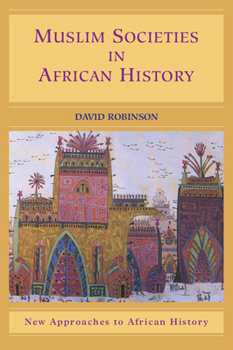Muslim Societies in African History
Select Format
Select Condition 
Book Overview
This book examines a series of processes (Islamization, Arabization, Africanization) and case studies from the Muslim societies of Africa over the last thousand years. In contrast to traditions suggesting that Islam did not take root in Africa, David Robinson depicts the complex struggles of Muslims throughout the continent: in Morocco and the Hausaland region of Nigeria; the pagan societies of Ashanti (Ghana) and Buganda (Uganda); and the ostensibly Christian state of Ethiopia. Further reading sections suggest how undergraduate readers can pursue research, and illustrations and maps supplement the text.
Format:Paperback
Language:English
ISBN:052153366X
ISBN13:9780521533669
Release Date:January 2004
Publisher:Cambridge University Press
Length:242 Pages
Weight:0.80 lbs.
Dimensions:0.6" x 6.0" x 9.0"
Customer Reviews
1 rating
Recommended
Published by Thriftbooks.com User , 16 years ago
Islam did struggle in Africa to anchor its roots. Its influence made a huge impact on African subculture. Arts, ethics, architecture, and political ideologies of today are in part remnant of such influence. However, the African tribal psychology did not totally succumb to Islam dogma. Confrontation did happen in the past. And today, such confrontation extends to other segments of our social life. The book refers to this confrontation, and to the ethnic identity of African societies that is still struggling against rigid Islamic view of modernization and contemporary social values. I enjoyed the book. It is not a reflection of my personal opinions, nevertheless it depicts an accurate picture of our social condition, national identity and resistance at a cultural level.





